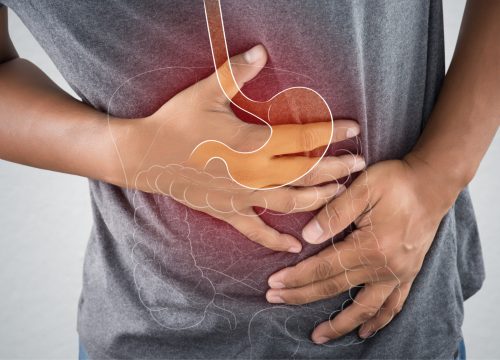Digestive problems are common health concerns that affect people of all ages. From mild discomfort to chronic conditions, they can disrupt daily life and overall well-being. In this article, we’ll explore the causes, symptoms, and potential treatments for digestive problems to help you better understand and manage them.
What Are Digestive Problems?
Digestive problems refer to any condition that affects the gastrointestinal (GI) tract, which includes the esophagus, stomach, intestines, and other organs responsible for digestion. These issues can range from minor discomfort like bloating to severe conditions such as irritable bowel syndrome (IBS) or gastroesophageal reflux disease (GERD).
Common Causes of Digestive Problems
Several factors can lead to digestive problems, including:
1. Poor Diet
A diet high in processed foods, fats, and sugars can negatively impact the digestive system. Lack of fiber and hydration can also cause issues like constipation and bloating.
2. Stress
Stress affects the body in many ways, including how the digestive system functions. Stress can lead to conditions such as indigestion, heartburn, and IBS.
3. Food Intolerances
Some people experience digestive problems due to food sensitivities or intolerances, such as lactose intolerance or gluten sensitivity.
4. Medications
Certain medications, including antibiotics, can disrupt the balance of gut bacteria, leading to digestive issues like diarrhea or bloating.
5. Chronic Conditions
Long-term health conditions, such as Crohn’s disease or celiac disease, can cause ongoing digestive problems that require specialized care.
Symptoms of Digestive Problems
The symptoms of digestive problems vary depending on the cause but may include:
- Bloating and Gas: Often caused by the buildup of gas in the stomach or intestines.
- Constipation: Difficulty in passing stools or infrequent bowel movements.
- Diarrhea: Loose or watery stools that can lead to dehydration if prolonged.
- Heartburn: A burning sensation in the chest caused by acid reflux.
- Abdominal Pain: Discomfort or pain in the stomach area, which can be sharp, dull, or cramping.
How to Manage Digestive Problems
There are several ways to manage and prevent digestive problems. Depending on the severity, some may require medical treatment, while others can be managed through lifestyle changes.
1. Adopt a Balanced Diet
Eating a healthy diet rich in fruits, vegetables, and whole grains can improve digestion. Foods high in fiber help keep the digestive system functioning smoothly and reduce constipation.
2. Stay Hydrated
Drinking plenty of water aids digestion and helps prevent constipation. Herbal teas, such as peppermint or ginger, can also soothe digestive discomfort.
3. Exercise Regularly
Physical activity stimulates the digestive tract, helping food move through the system efficiently and reducing the chances of bloating and constipation.
4. Manage Stress
Since stress can aggravate digestive issues, practicing relaxation techniques such as meditation, deep breathing, or yoga can promote better gut health.
5. Over-the-Counter Medications
For occasional digestive problems, over-the-counter medications like antacids, laxatives, or probiotics may help alleviate symptoms. However, long-term use should be discussed with a healthcare provider.
When to See a Doctor
If you experience persistent digestive problems, it’s important to seek medical advice. Chronic symptoms such as severe abdominal pain, unexplained weight loss, or blood in the stool could be signs of more serious conditions like ulcers, infections, or inflammatory bowel diseases.
Conclusion
Digestive problems are a widespread issue that can be caused by various factors, including diet, stress, and chronic health conditions. By recognizing the symptoms and making lifestyle changes, you can often manage and alleviate discomfort. If symptoms persist, it’s essential to consult a healthcare provider to rule out any serious underlying conditions and get the appropriate treatment.

